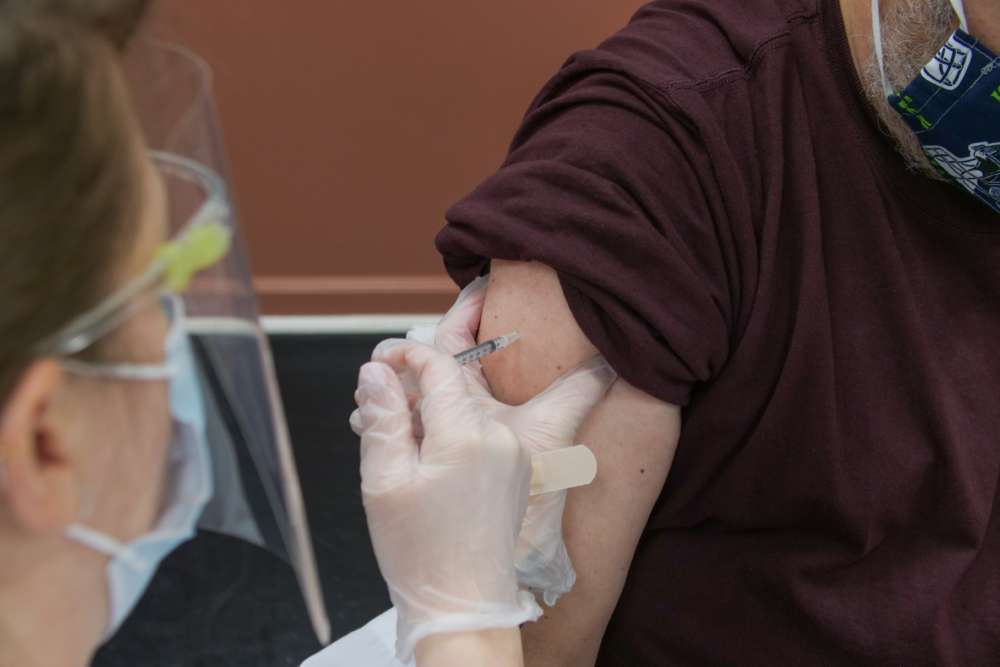
We go back to Covid-19, which will never really leave us now – the idea of it is with us forever.
Vaccines will make a huge difference, saving lives. Yes, at Good Grief! we talk about death, but facing off against Covid-19 is now part of that conversation.
At the moment there is fear and push back because of the blood clotting associated with the Astra Zeneca vaccine. This is the one being rolled out in Australia.
We need to be careful. I can hear the frustration of the medicos who try to reassure, saying there are no side effects. Experts have said so, this week. One pointed out that a reaction to the vaccine was “just a coincidence”, a point he repeated.
We need to look to the truth of the experience of those who say they have experienced something.
At Good Grief! we know at least two people who have had the Astra Zeneca vaccine who noted a reaction; sickness, temperature, aching joints. Both are enthusiastic about the vaccine and what it can do. They are pro-vaccine.
But they had a reaction. It made them afraid, even if for a nano-second. Both are completely emmeshed in the health and medical system. They knew to hold on to that fear, to push through.
But for other people it won’t be like that. We need to connect with their deep truth, validating personal experience. “Yes, you had a reaction. It is probably a coincidence and this is the reason why.” Or “No, it’s not a coincidence but this is what it means. This is the science about reactions. Let me share it with you.”
The Australian Therapeutic Goods Administration (TGA) monitors adverse reactions. The ABC reported on March 17 that out of 164, 437 vaccinations here in Australia, there have been 730 adverse reactions reported to the TGA. Most of these will be the mild reactions that the people we spoke to noticed.
Rolling along beside these personal experiences, so adding to people’s concerns, is the story emerging from Europe.
From March 11, Europe was on alert because findings of Germany’s Paul Ehrlich Institute showed an increase in the number of cerebral venous sinus thrombosis (CVST) in people who had just had the vaccine. In 13 countries the vaccine roll-out was paused because of this.
But on Friday March 19 (Australian Eastern Daylight Time), the vaccination rollout was resumed.
This followed an investigation by the European Medicines Agency. It found Covid-19 vaccinations were not linked to an overall increased risk in blood clots, and that the benefits outweighed the risks.
This hiccup understandably frightened people. But CVST blood clots are associated with Covid-19 disease, and the risks of getting that are much higher if you get sick with Covid-19, than if you have the vaccine.
This means people need reassurance and proper, open explanations. Otherwise anti-vaxxing sentiment will take hold and that can happen so easily.
In a very good article, The ‘V” Word, by Bridget Judd for the ABC, Dr Chris Ingall makes the point in relation to anti-vaccination sentiment in the Mullumbimby region, that you can’t patronise people about vaccines, especially those who’ve had a genuine reaction to them, even if only very minor. He was talking about previous vaccines against childhood diseases but both he and the author were drawing a link between the Mullumbimby region’s suspicion of any vaccines and new attempts to quell the Covid-19 pandemic.
“While a scepticism to vaccines was almost the “default clause” when Ingall first moved to the region in the 1980s, he believes anti-vaccination campaigners were galvanised by global controversy over the pertussis whole-cell vaccines, which were used to prevent whooping cough before being phased out in Australia a decade later in favour of the acellular vaccine,” Bridget writes.
“And on that, he is candid: ‘We gave them a platform.”
And later in the same article, Ingall says: “They’d taken their children along for vaccination, they’d had these reactions, and they’ve been told, ‘Oh no, it’s just a cold’, or ‘it’s just this’ or ‘just that’,” he says.
“And we’ve got to be really open about that, because these events will come up again. We gave them a platform, a platform that they had been marginalised and silenced.”
There are more sinister reasons for distrust of vaccines in other parts of the world. But Australia has a good record with vaccines. The ‘green-light’ for the roll-out here didn’t just piggyback on approval processes overseas. It was a genuine process of evaluation, starting from scratch, conducted thoroughly by our own evaluation agencies.
We need the vaccine but we also need to gain wide trust for mass vaccination to be effective. It’s not enough for the medical fraternity to be confident. Everyone needs to be.
More reading:
Death and Covid-19 – what should we think?
To find answers to questions about the Covid-19 vaccine roll-out in Australia, the ABC has a good site. Go to:
To follow the European Medicines Agency’s press conference go to:
(Warning, this is very long!)
To follow the Paul Ehrlich Institute’s discussions and to keep up to date with them, go to:
For their discussion about their recent concerns about the Astra-Zeneca vaccine, go to:
To read Bridget Judd’s piece on trust and vaccines, go to: https://www.abc.net.au/news/2021-03-14/mullumbimby-anti-coronavirus-vaccination-changing-narrative/13109238
